New York, 09 Safar 143/09 November 2016 (MINA) – As Americans go to the polls Tuesday to elect a new president, Muslims find themselves between a rock and a hard place.
That’s not to say they are undecided, but they share a common sentiment with the rest of Americans: They believe they are out of good choices when it comes to choosing a candidate to support.
Muslim voters have for the most part supported Democratic candidates since Republican President George W. Bush declared a “war on terror” in Oct. 2001 and Islamic countries appeared to bear the brunt of that decision.
Outgoing President Barack Obama won major support from the nation’s 3 million Muslims, with nearly 89 percent voting for him in 2008 and 85 percent in 2012, according to exit polls by leading Muslim advocacy group Council on American-Islamic Relations (CAIR).
Also Read: Heat Wave Across Europe Causes 2,300 Deaths, Study Finds
This year, CAIR data shows an even more decisive support for Democratic nominee Hillary Clinton, who is also the first-ever female nominee from a major party. But that’s not the whole story.
“I don’t think Hillary Clinton is an attractive candidate. In reality, the fact that she is only ‘attractive’ compared to Donald Trump is troubling,” Sara Zayed, a 22-year-old technology analyst on Wall Street, told Anadolu Agency. “Her foreign policy is hawkish and often hurts women and children, which contrasts her ‘feminist’ message.”
Zayed’s words resonate with a broad spectrum of the incredibly diverse voter group of Muslims.
New factor at play
Also Read: Top Economists Defend UN Gaza Report, Expose Global ‘Genocide Economy
In diversity, they share common threads, one of which is that they believe they are stuck between a bad choice and a worse choice. Also, when it comes to supporting a presidential candidate, they think about the ummah – the global Muslim community – as much as they consider themselves in the U.S.
But this year, there is a new factor at play as Muslim voters are a stronger than ever voting bloc.
More than 1 million Muslims have registered to vote, according to CAIR. That is up from 500,000 in 2012 – placing the Muslim electorate is a position to have a markedly greater effect on the outcome.
Clinton is taking note. In a first for practically any presidential campaign in the U.S., she appointed a Muslim outreach director who travels the country to talk to voters about what is at stake Tuesday.
Also Read: Trump Approves New Weapons for Ukraine, Weighs Tougher Sanctions on Russia
In addition, Clinton has high-profile aide and Muslim Huma Abedin, in her corner. She also has the support of leading advocacy figure Rep. Keith Ellison, the first Muslim elected to Congress.
The former Secretary of State’s immigration policy includes offering shelter to a much higher number of refugees, especially from Syria. She is on record proposing a 650 percent increase above the current 10,000 allowed in from the war-torn country.
Republican candidate Donald Trump, on the other hand, hasn’t made it easy for Muslims to support him.
First, he has made a hardline immigration demand a cornerstone of his campaign. Months after he launched his “movement” to “Make America great again” last year, Trump proposed “a total and complete shutdown of Muslims entering the United States” in reaction to homegrown terrorism.
Also Read: 26 Former British Diplomats Urge Recognition of Palestinian State
Then in March, Trump told CNN “Islam hates us”, and made no attempt to distinguish between the religion of Islam and radical extremist fringe groups he claims he would want to target.
Silent majority
At the Democratic National Convention in July, Trump faced withering criticism from a Muslim Gold Star family who lost its 27-year-old son, Capt. Humayun Khan in 2004 as he sacrificed his life to save his fellow servicemen in Iraq.
His father, Khizr’s poignant remarks, in which he asked Trump, “Have you even read the United States Constitution?” to thunderous applause from the convention, became one of the highlights of the Democratic campaign.
Also Read: UN Air-Drops Aid to South Sudan Amidst Looming Famine
Trump passed on the opportunity to bridge communication with Muslim voters and instead retorted bitterly by belittling Khan and portraying his wife as oppressed.
And Trump has never asked for the Muslim vote during numerous rallies across the country. The closest he may have come to dialogue with Muslims was when he said they “have to cooperate with law enforcement” because “they know” those who harbor ill intentions.
That partly explains why just 4 percent of Muslims say they would support Trump, according to the latest CAIR poll. By contrast, Clinton is polling at 72 percent.
But Sajid Tarar, founder of American Muslims for Trump, believes a “silent majority” will help put Trump into the Oval Office. And Muslims should play their part.
Also Read: Protesters Denounce Netanyahu’s White House Visit
“This election is bigger than Donald Trump,” Tarar told Anadolu Agency. “The American flag has lost respect [it commands] in the world,” he said, placing the blame squarely on the shoulders of the Obama-Clinton administration.
Trump “came up with new ideas” and “diagnosed the issue of Daesh extremism”, according to Tarar.
“I totally agree with” Trump’s offer to ban Muslims coming into the U.S.
It is an ironic position for Tarar, who is of Pakistani origin, when one considers his own family would have been barred from entering the U.S. if Trump’s policy were in place three decades ago.
Also Read: EU Commission Finds No Evidence Hamas Stole Aid in Gaza
Tarar acknowledges his home country of Pakistan is “famous for terrorism” and he does not want people coming from there if they want to hurt the U.S. “I love this country more than my life,” he said.
Tarar, who attended law school in the U.S. and owns real estate, has harsh words for Muslims coming to the U.S., saying that the majority have “no concept of democracy”.
He is not fazed by multiple sexual assault allegations against Trump’s nor lewd remarks the candidate made about preying on and groping women. The American people have forgiven Bill Clinton, and they will forgive Donald Trump, according to Tarar.
Those sentiments appear to be in the minority.
Also Read: Activists Begin Hunger Strike to Protest Belgium-Israel Relations
Americans are known for having short memories but Muslim female voters Anadolu Agency spoke to want no part of a Trump presidency.
“I can’t wrap my head around the idea that there is a group of Muslims who support Trump’s campaign,” said Hatice Cagla Gunaydin, a 21-year-old Turkish-American international relations major at George Washington University. “I don’t see how Trump’s campaign and sentiments align with Islam’s principles of peace, community, and justice.”
Gunaydin said Clinton has more experience and, despite her shortcomings, is uniquely poised to make her mark. “Although I believe neither candidate is the ideal candidate, it would make me really proud to have voted for the first woman president of the United States,” she said.
For Dalia Fahmy, an analyst and political science professor at Long Island University Brooklyn, the billionaire candidate has already made his mark, but not in a very good way.
Also Read: Trump Hosts Netanyahu at White House
“As the Republican candidate for president, what Donald Trump has done to the U.S. as a nation will take a while to reverse or recover from,” she said as she noted that American Muslim women are the second most educated religious minority group in the U.S., behind only Jewish Americans, according to pollster Gallup.
“While voting is a personal choice, I cannot see myself choosing a candidate that has used xenophobia, racism, sexism, Islamophobia, and Immigration fear mongering to garner support,” she added.
Shabih Aftab, a marketing analyst based in New York, is surprised Trump has been able to make it this far in the race.
“It’s amazing to know that there is a vast portion of the American public standing behind Trump and the things he says,” she said. “It takes simply one step back and a sprinkle of decency to see that this election is a mad house. Trump makes me feel unsafe to be a woman in his reign,” she added. (T/R07/R01)
Also Read: Trump Delays Tariff Deadline to August 1
Mi’raj Islamic News Agency (MINA)





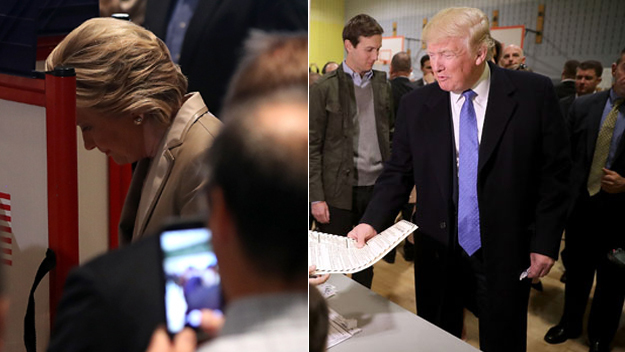


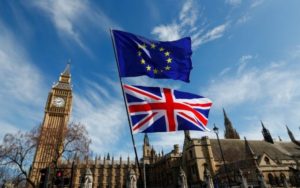



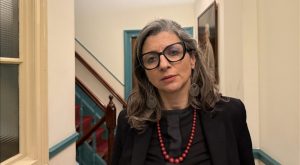



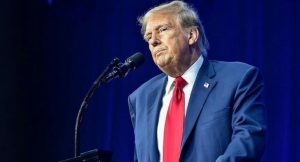

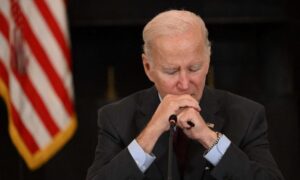

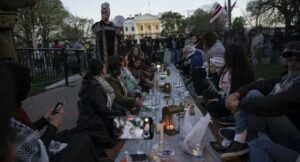



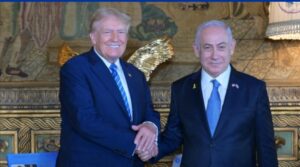







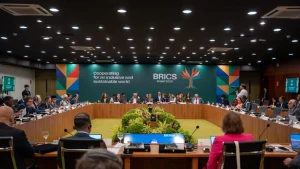



 Mina Indonesia
Mina Indonesia Mina Arabic
Mina Arabic